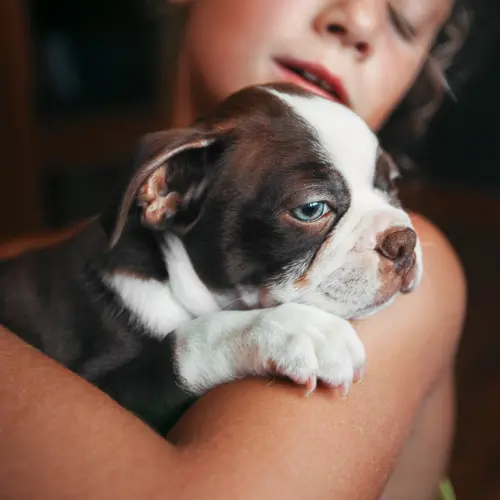Vomiting is when your dog forcefully ejects the contents of the stomach or the upper intestine. A vomiting dog may show abdominal heaving and nausea.
Dog vomiting may happen for several reasons. It could be that your dog ate more than they could handle or ate too fast, or your dog could have eaten too much grass.
Sometimes the cause could be more serious. Your dog could have swallowed something toxic, or it may be a sign of a serious illness, which could require a visit to see your vet.
It is important to know the difference between an isolated case of vomiting and chronic vomiting.
You should also be able to tell if your dog is vomiting or regurgitating. Dogs mostly regurgitate soon after eating, and it’s a mostly passive process — the dog simply lowers their head, and food comes up, without active abdominal contractions like when vomiting. The food expelled during regurgitation is usually undigested and without bile. But vomit is partially digested and has some bile. Your dog will almost always try to eat regurgitated food.
Why Is My Dog Throwing Up?
Knowing the root cause of your dog’s vomiting is essential for finding the best solution. Here are some possible causes of a sudden or acute episode of vomiting:
- Intestinal parasites
- Bacterial infections (gastrointestinal tract)
- Ingestion of toxic substances
- Diet change
- Food intolerances
- Bloat
- Foreign substances in the gastrointestinal system (toys, garbage)
- Viral infections
- Heatstroke
- Acute kidney failure
- Pancreatitis
- Acute liver failure
- Certain medications
- Intestinal inflammation
- Intestinal obstruction
- Constipation
- Pancreatitis
- Cancer
- Kidney failure
- Liver failure
- Parvovirus
- Colitis
- Uterine infection
Why is my dog throwing up frequently? Frequent throwing up can be a sign of a serious medical condition. Watch for symptoms like these:
- Abdominal pain
- Weakness
- Vomit with blood in it
- Depression
- Weight loss
- Dehydration
- Fever
If your dog is throwing up food and also has any of these symptoms, take them to the vet.
If your dog throws up and continues eating with normal bowel movements, it might just be an isolated incident. But if your dog is vomiting and not eating, you should check with your vet to rule out serious conditions.
Treatment for Dog Vomiting
The treatment for a dog's vomiting may differ depending on the severity and cause of the condition. Your dog’s overall health can also affect the type of treatment.
When to take your dog to the vet. Detecting the symptoms early is important, so watch your dog carefully. If your dog vomits more than once in a day, without a break, or for more than 24 hours, you should see a vet. A dog throwing up mucus occasionally may not be a cause for concern. However, if your dog is throwing up mucus frequently, you should take them to the vet. You should also take your dog to the vet for vomiting if they are very young or very old or have other illnesses.
Thankfully, many of these conditions are treatable. Explain everything carefully to the vet to help them make the correct diagnosis.
How the vet will determine whether your dog is sick. Your vet will first examine your dog. Then, using what you tell them and what they learn from the examination, they may decide to do some tests like these:
- Blood tests
- Fecal tests
- Ultrasound
- Biopsy
- Radiographs
- Endoscopy
In some cases, your vet may also have to do exploratory surgery. After knowing what is making your dog sick, the vet can suggest the best treatment.
How the vet will treat dog vomiting. Your vet may prescribe antibiotics if the vomiting is a result of an infection. Other medications may include antiemetics, which are used to control vomiting. In other cases, the dog may need fluid therapy. Surgery can be recommended in serious cases.
If the vet rules out underlying concerns, treatment can be as simple as a diet change. The vet may advise you to feed your dog some home-cooked food like skinless chicken, boiled potatoes, and rice. These can be good short term-options for a dog with an upset stomach, but they are not nutritionally complete for long-term care. Take care of your dog as you would a sick child. Do not feed your dog raw food, which can have germs like salmonella.
Be sure to follow your vet's recommendations to keep your dog safe and healthy.
